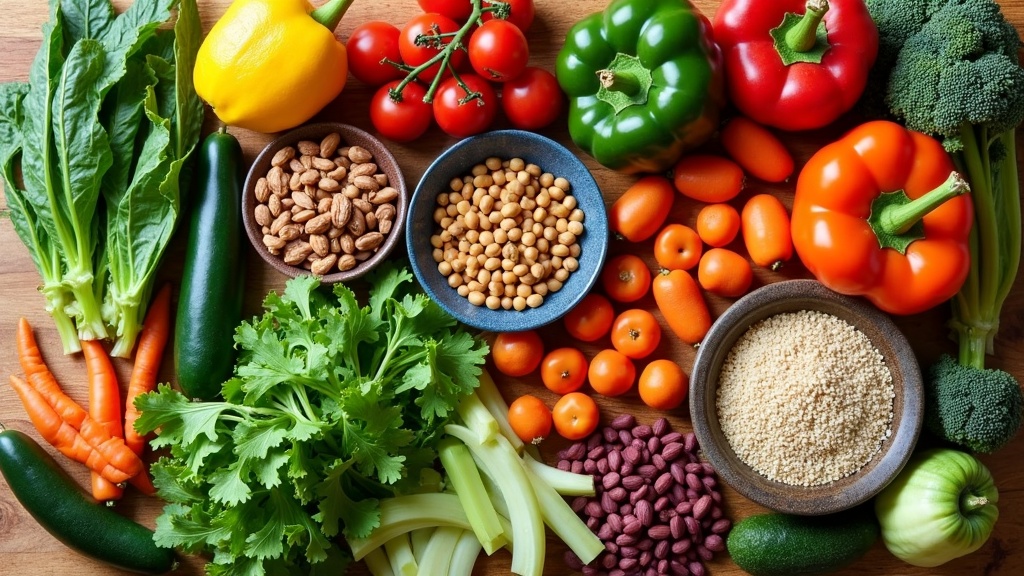Plantbased diets keep popping up in conversations about healthy living, especially when it comes to lowering the risk of certain diseases.
Cancer is one of those hot topics where research often points to what we eat as a factor in prevention.
With so many studies and buzzwords floating around, sorting out what’s backed by real science can take some digging.
Here, I’m sharing what I’ve learned from checking out the research on how plantbased eating can play a role in cancer prevention.

How Plantbased Diets Connect to Cancer Research
A plantbased diet focuses mainly on foods from plants, including veggies, fruits, nuts, beans, whole grains, and seeds.
Some folks go fully vegan (skipping all animal products), while others follow a vegetarian or flexitarian lifestyle and include small amounts of meat or dairy.
The link between plantbased diets and a lower cancer risk comes up regularly in large health studies.
According to the World Cancer Research Fund and the American Institute for Cancer Research, diets packed with fruits, vegetables, and fiber loaded foods connect with a reduced risk of several cancers, including colorectal, breast, and prostate cancer (WCRF).
Researchers believe this happens because plant foods have a mix of fiber, antioxidants, vitamins, and phytochemicals.
All of these help the body shield itself from cellular damage and inflammation that might lead to cancer development.
For anyone wanting to dig into the details, studies like the Adventist Health Study and EPIC (European Prospective Investigation into Cancer and Nutrition) often come up as reliable sources showing the upsides of plantheavy diets.
What Makes Plantbased Foods Potentially Protective?
Certain parts of plants work in pretty interesting ways when it comes to cancer prevention:
- Fiber: Keeps digestion smooth and supports healthy gut bacteria. Studies suggest this helps clear out potential toxins that could impact cell health.
- Antioxidants: Vitamins like C, E, and betacarotene guard cells from DNA damage caused by free radicals, which are unstable molecules linked to many cancer types.
- Phytochemicals: These are natural plant compounds (like flavonoids, carotenoids, and lignans) that might slow down cancer cell growth or even trigger cell selfdestruction when something’s off.
- Plant protein: Beans, lentils, and tofu pack in protein without the extra saturated fat found in some animal products, which can be a factor in certain cancers.
Research published in journals such as JAMA Internal Medicine and Nutrients shows that these nutrients blend together in ways that benefit overall cell health and potentially lower the odds of abnormal cell growth that could go cancerous.
Key Studies on Plantbased Diets and Cancer Prevention
Some research highlights stick out when talking about plantheavy diets and reduced cancer risk:
- Adventist Health Studies: These longterm projects tracked tens of thousands of Adventists (a group known for eating little meat) and saw that vegetarians registered lower rates of several cancer types compared to nonvegetarians (source).
- EPIC Study: In a huge European population, folks eating more fruit, veggies, and fiber had lower risks for digestive tract and other cancers. High red and processed meat intake clearly raised cancer risk (source).
- Prostate Cancer Research: Some research points to a possible tie between plantrich diets and lower rates of prostate cancer, with soy foods and cruciferous vegetables (think broccoli, cabbage, and kale) getting a special shoutout (source).
- Breast Cancer: Though the data mix it up a bit, lots of studies suggest diets high in fiber, fruit, and vegetables link with a lower breast cancer risk, especially in younger women (NIH summary).
Most of these studies are what’s called “observational,” meaning they look at people’s eating habits and what diseases show up over time.
This helps spot patterns, though it can’t promise that diet alone is behind the results.
Simple Steps for Trying Out a Plantbased Diet
Switching to a plantfocused way of eating doesn’t mean you have to change everything at once.
Here are a few practical ideas I found helpful for making the change more about finding new foods and less about giving things up:
- Pile on Vegetables: Start by adding more veggies to dishes you already enjoy. Toss in extra spinach for pasta, serve a side salad, or go for roasted veggies with dinner.
- Choose Whole Grains: Swap out white rice, bread, or pasta for whole grain versions when you can.
- Test Out Legumes: Beans, chickpeas, and lentils work well in soups, salads, grain bowls, and curries. Plus, they’re easy on the wallet.
- Try New Proteins: Tofu, tempeh, and even seitan can bring some fun to your menu if you’ve never cooked with them. They soak up seasonings well and stand in for meat nicely in lots of recipes.
- Snack Smart: Go for nuts, seeds, and fruit instead of processed snack foods to keep things healthy and satisfying.
Making simple swaps bit by bit, instead of transforming your meals overnight, goes a long way toward making these habits stick.
Everyone’s preferences vary, so adjust your routine as needed.
What to Keep in Mind About Plantbased Diets and Cancer
As promising as the research looks, here are a few things to keep in mind:
- Nutrient Gaps: Cutting out animal products with no plan can sometimes leave you low on nutrients, especially vitamin B12, iron, omega3s, and sometimes calcium and vitamin D. Keeping meals balanced and adding supplements if you need can make sure you’re getting what you need.
- Quality Counts: Not every plantbased food brings the same benefits. French fries and ultraprocessed meat substitutes technically fit under plantbased, but they don’t bring much to longterm health. Fresh, lightly processed foods pack more of a punch.
- No Guarantees: A healthy diet can reduce cancer risk but can’t wipe it out completely. Genetics, environmental factors, and other choices, like staying active and not smoking, matter as well.
Moving toward a plantforward eating style is about making decisions that match your health goals and what’s doable for you over the long haul—it’s not about being perfect.
Whole Foods vs. Processed Plantbased Foods
Recently, “plantbased” processed products like burgers, nuggets, and snack bars have gotten popular.
While these can be convenient sometimes, focusing on actual veggies, beans, fruits, and grains gives you more fiber and nutrients while skipping the added sodium, fat, or sugar.
In my experience, prepping basics like a pot of beans or roasting veggies ahead of time makes sticking with whole foods just as simple as grabbing something packaged.
Getting Protein on a Plantbased Diet
Getting enough protein on a plantbased diet is easier than most people think.
Beans, lentils, chickpeas, quinoa, tofu, tempeh, nuts, and seeds give you plenty of protein.
Mixing up your sources throughout the week keeps things on track, and you don’t have to stress over combining proteins at every meal as long as you eat a mix over the course of the day (Academy of Nutrition and Dietetics).
Frequently Asked Questions
There’s plenty of curiosity about plantbased diets and cancer.
Here are a few common questions paired with what the research says:
Question: Can a plantbased diet prevent all cancers?
Answer:
No diet can guarantee zero cancer risk.
Eating plantbased connects with lower risk because of the high fiber, antioxidants, and less processed meat intake, but genes and your lifestyle count, too.
Question: How much do I need to change my diet to see benefits?
Answer:
Even little steps make a difference. Tossing in more veggies, beans, and whole grains helps, even if you don’t fully go vegetarian or vegan.
Question: Are there any risks with eating completely plantbased?
Answer:
With good planning, plantbased diets are healthy for most people.
Keep an eye on possible shortfalls like B12, iron, and omega3s.
Asking a dietitian or doctor can help with a balanced switch.
RealLife Impact: Why Plantbased Eating Is Worth Exploring
Choosing a plantbased diet goes beyond science; it pops up in real lives.
As someone who’s worked with people moving in this direction, I’ve watched folks pack more veggies into their meals, stumble upon recipes they love, and stumble upon new foods that help them meet their health goals.
While nobody can promise a diet will protect you completely, loading your plate with plants offers real benefits for prevention and longterm well-being.
It’s a practical, sustainable way to give a boost to your health for the future.
